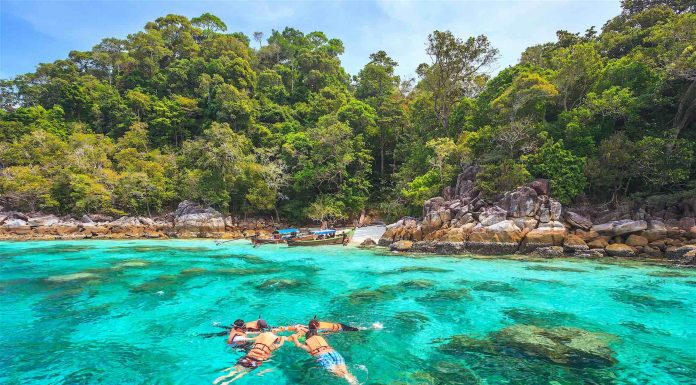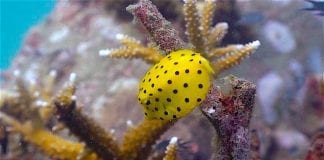How to Interact Correctly with Marine Life
As scuba divers, we have the most amazing opportunity to interact with marine life but with this opportunity, comes an even greater responsibility.
The ocean, along with all its inhabitants is to be respected and in doing so, is a big part of being a responsible diver.
The curiosity of a diver and the impulse to touch is natural, however, each time we decide to venture into the water, our actions can have serious effects on the local environment.
Whether it be from lack of awareness or simply pure disregard for marine life, we all have the potential to do harm.
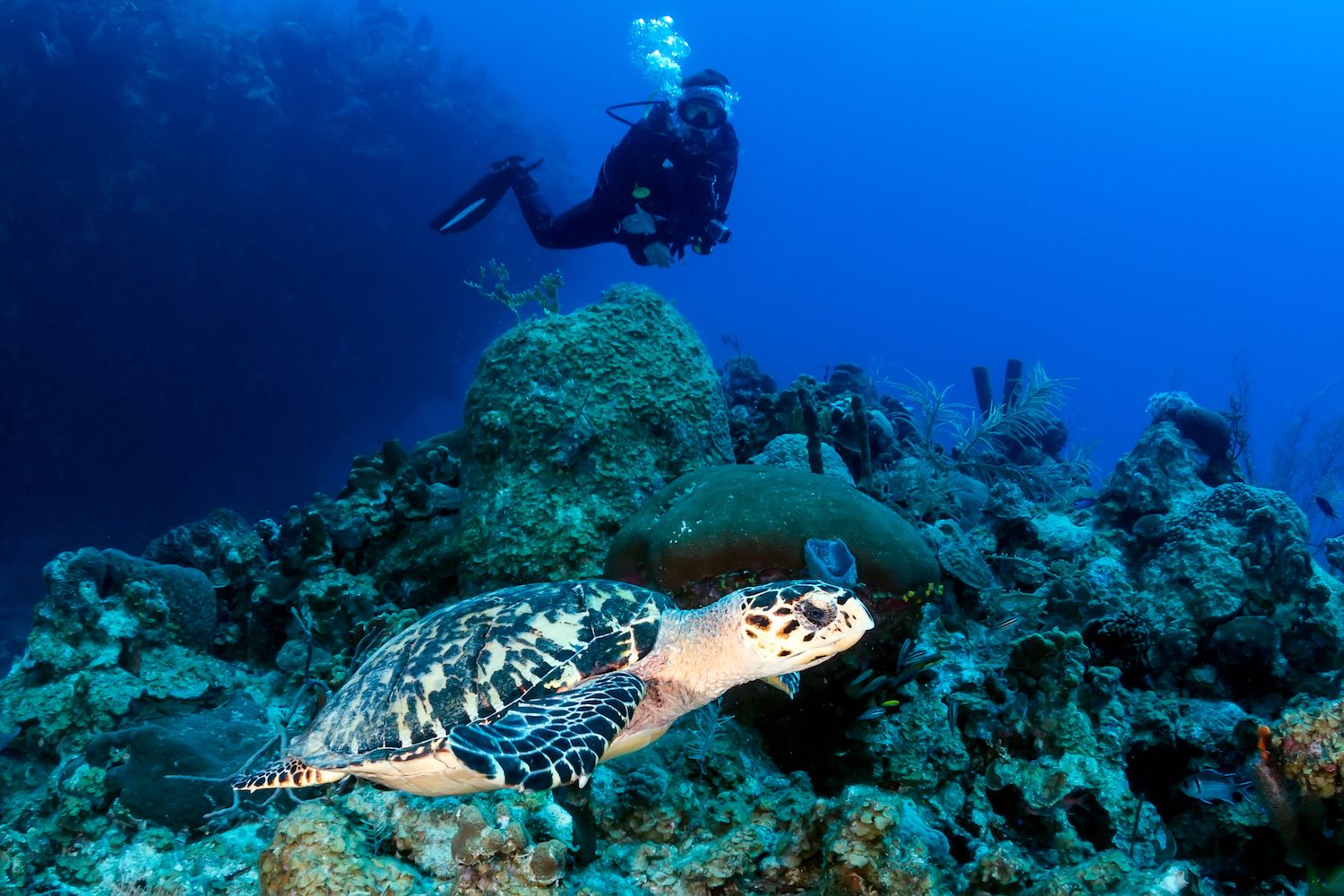
What is the best way to interact with marine life?
Our list will improve your awareness and help you to avoid disruptive behaviour, enhancing your experience and ensuring maximum benefit for the marine life.
Koh Tao offers visitors 30 dive sites to choose from and they are located around the island in shallow bays, open water and deep bays, all with an abundance of marine life.
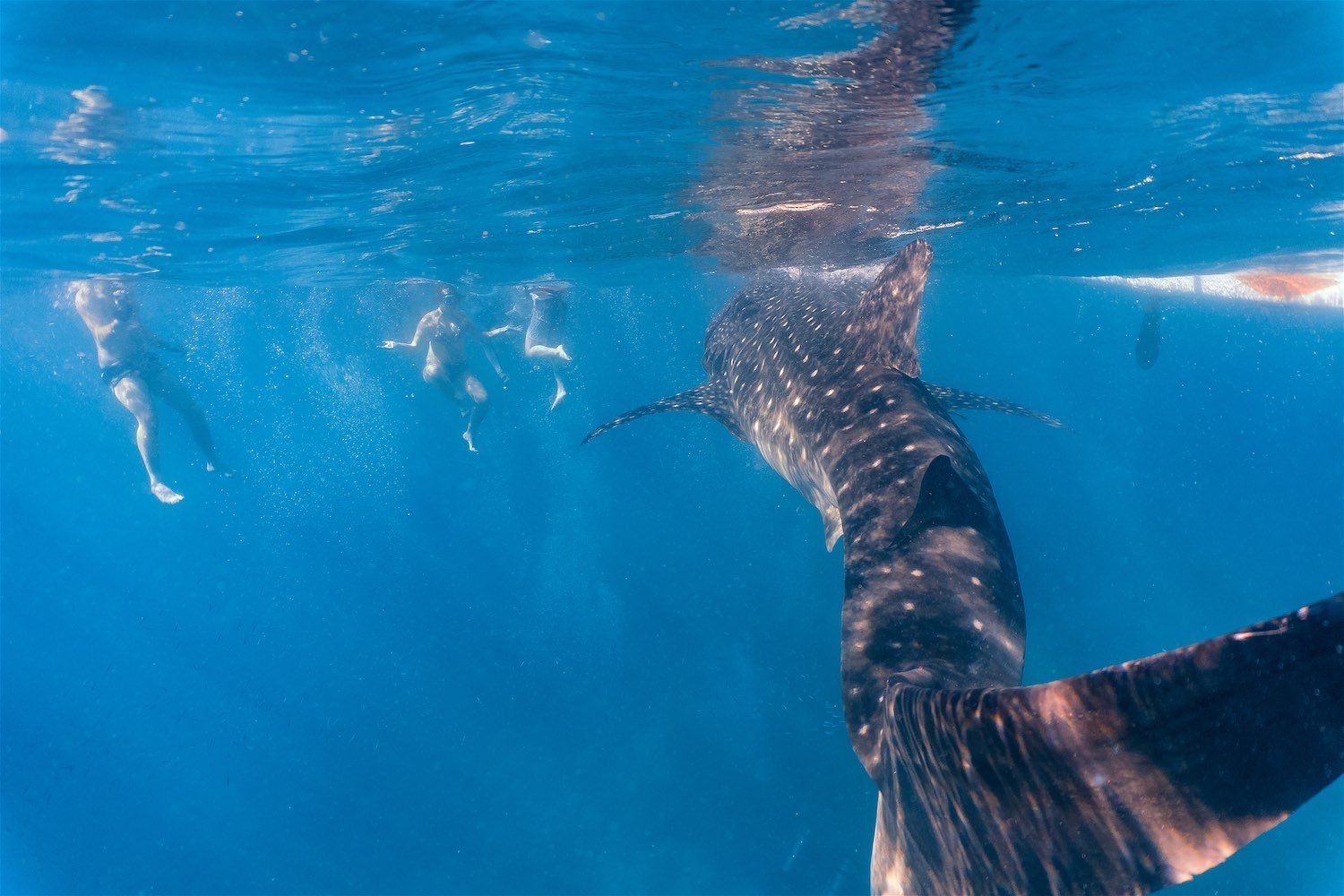
8 Best Tips to Interact with Marine Life
Go Slow
The best way to experience the underwater realm in all its glory is to remain calm and relaxed whilst diving, this is classed as passive interaction.
Maintaining a slow, steady pace allows the surrounding marine life to continue their normal behaviour and allows you to be able to see how they act in their natural habitat.
Sudden, rapid movement can cause any surrounding marine life to go into high alert, altering their behaviour.
Stay Calm
The trick is to stay calm and to dive as unobtrusively as possible, so as not to frighten them, make them flee or force them into hiding.
Chances are the slower your movements are and the more you respect their boundaries then the more you will be able to see.
Stop & Hover
One of the most important tips is to maintain neutral buoyancy whenever possible. Sometimes it’s best to take a break and stop for a while, gently hovering and observing what is around you.
Try to stay off the sea floor as some sea creatures tend to blend in with the sand below and by resting or standing on the bottom, you can seriously damage them.
Good Buoyancy
Another good point to remember is to try not to disturb the sediment on the bottom.
This can lead to various problems including causing marine life to flee, blocking the sunlight that corals need in order to thrive and even lowering the visibility for your fellow divers.
Be Mindful
There are a number of things to be mindful of when exploring the deep blue sea, your position being number one.
Pay particular attention to where you position yourself and how you position yourself underwater with your equipment.
Your feet, when wearing fins, are now longer than normal, not to mention the tank on your back which increases your size.
Many divers do not practice good spatial awareness so it is important to recognise and adapt to your new size.
Always be aware of any equipment dangling loose and dragging along the floor as even the slightest graze can cause great damage.
Be mindful of hand placement and make sure to watch your knees and feet too.
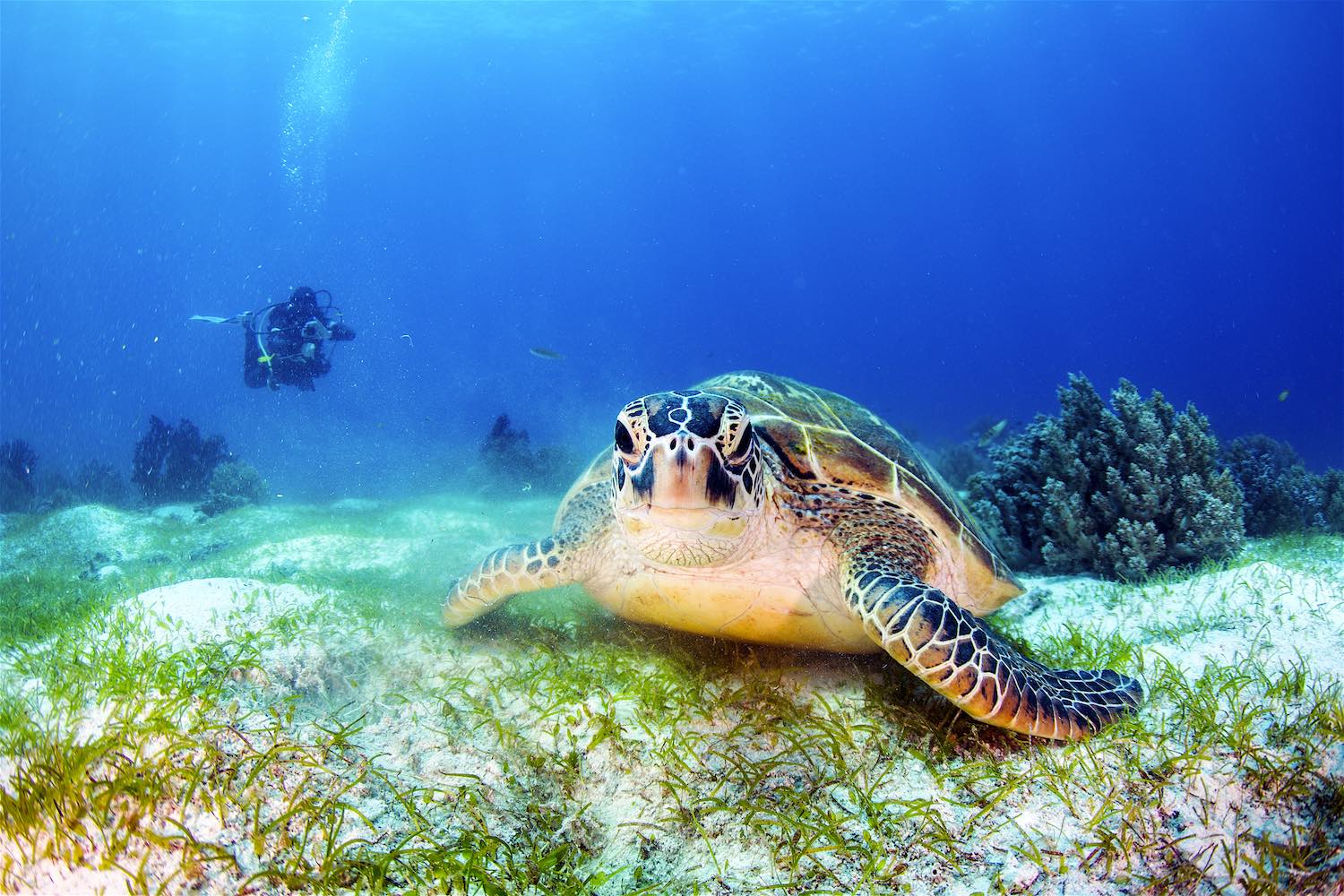
Do Not Touch
All marine life must be treated with respect so therefore it is very important that they must not be touched.
Coral reefs are a living, breathing organism that help to contribute towards the regulation of carbon dioxide levels in the ocean.
No Touching
They have a layer of antibacterial mucous but when touched, they become defenseless.
Much in the same way that when sea creatures are touched, their outer exterior that serves as a barrier against the external environment, becomes altered and therefore vulnerable to contamination and more susceptible to disease.
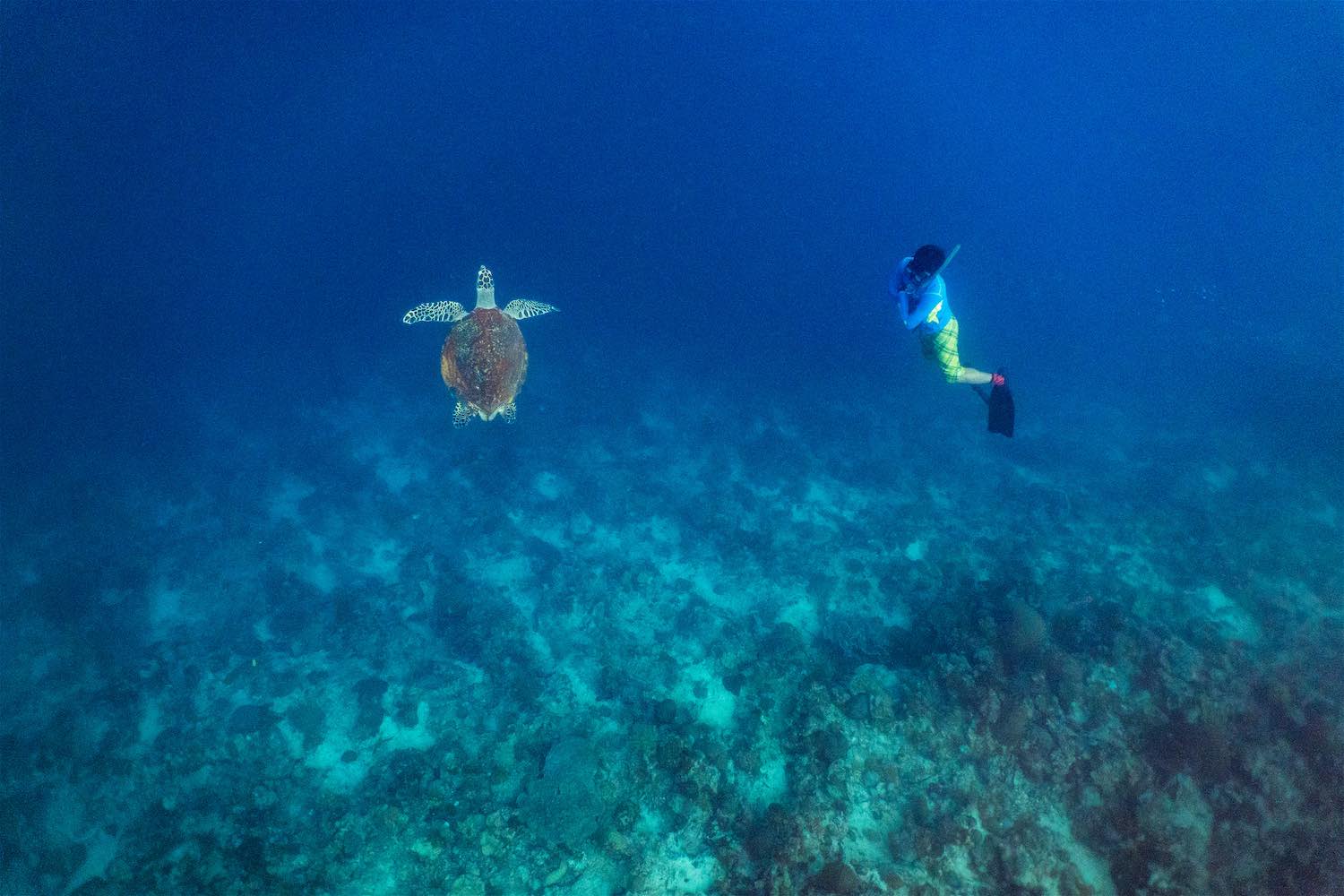
Do Not Chase
All sea life are natural swimmers, far greater than humans, so intentionally teasing and chasing will only force them to flee.
You are much more likely to experience a close encounter with an animal when being still and using passive interaction, rather than active.
Chasing them may make the animal feel alarmed, disturbed and aggravated which can trigger a defence mechanism.
No Chasing
Some creatures can be curious and interactive, just like us but it is important to remember that it is their choice whether they wish to come near you or not, not yours.
If lucky enough to experience such an encounter, allow them to freely explore you but do not touch them and do not block any exits for them.
Do Not Blind
When taking underwater videos or pictures, try to avoid using the flash in the direct eye line of any marine life whenever possible as the flash can severely bewilder them, leaving them startled, disoriented and temporarily blinded.
When using torches, try not to direct the light directly toward the creature you have seen but instead, shine the light next to it.
There will still be enough light to observe the animal yet at the same time, protect it from the unnatural light source.
Do Not Feed
Fish feeding comes with a whole host of problems because it can seriously impact and even harm organisms.
Feeding marine life unnatural foods alters their normal behaviour that can lead to a ripple effect, altering the feeding patterns of normal prey and creating a population imbalance that affects the local ecology.
No Feeding
It is not only the marine animals that suffer but corals can suffer too. Unnatural food gathering in the reef can increase nutrient levels which then leads to an increase of harmful bacteria that can damage the corals.
Feeding should be avoided at all costs, in fact, it is better to avoid all contact at all, especially with unfamiliar organisms.
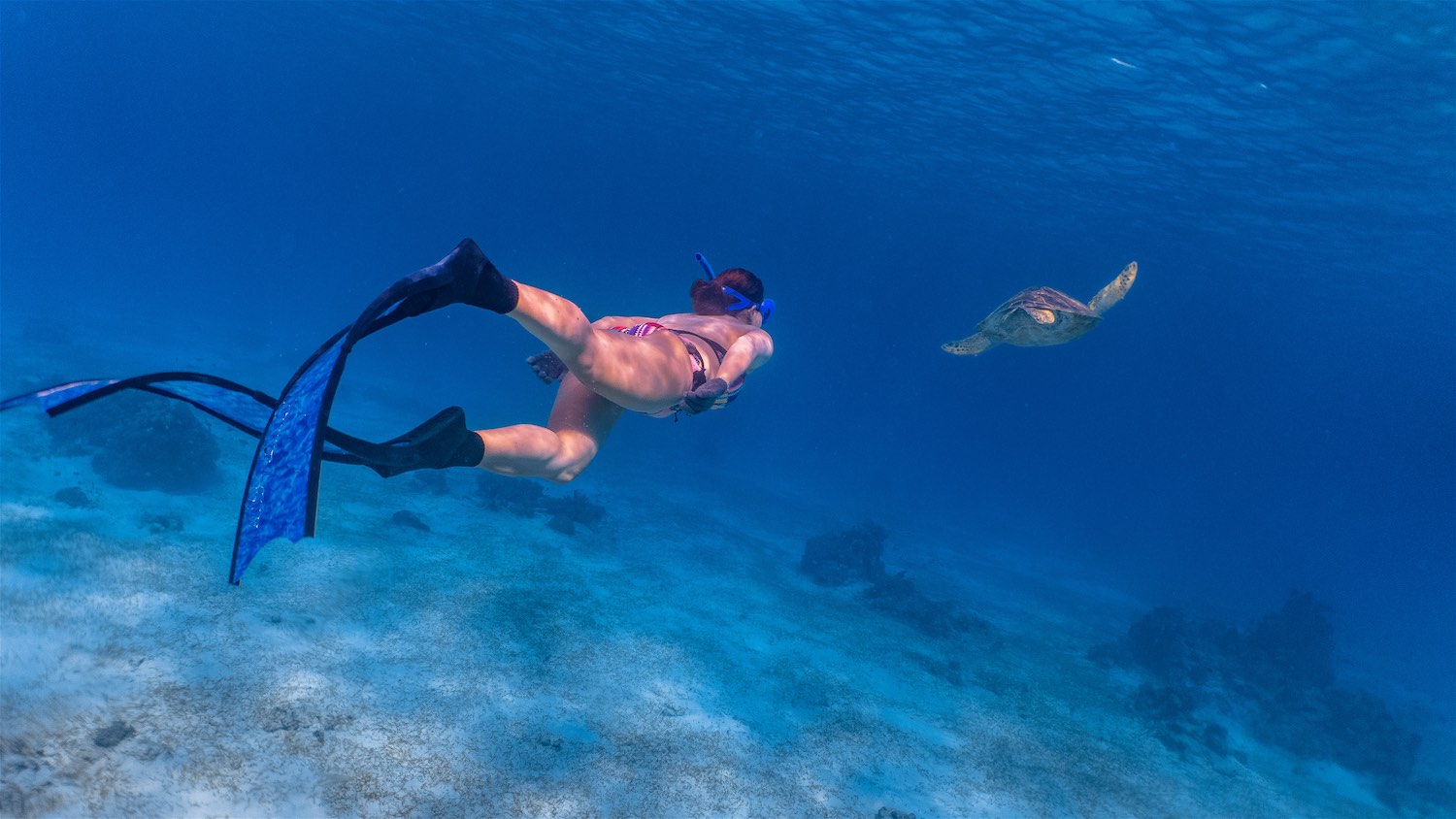
Be A Good Example
There are other ways to help marine life to flourish by being a responsible diver. You can make sure you wear the appropriate gear and keep everything in place as you dive.
When in tropical waters, gloves should only be used for wreck dives as there is more risk of hurting yourself on jutting metal or a sharp wreck line.
You can also do your bit for the environment by using a reef safe sunscreen when relaxing on the boat and by removing any visible trash during your dive.










